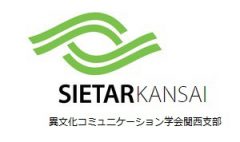Presenter: Dr. Kyoko Okumoto(Osaka Jogakuin University)
Date: Saturday, November 3 (2:00pm~4:00pm)
Place: Takatsuki Shiritsu Sogo Shimin Koryu Center
(1 minute walk from JR Takatsuki Station), Tel. 0726-85-3721
http://www.city.takatsuki.osaka.jp.
Fee: 500yen for members and students, 1.000yen for non-members
Language: English (English & Japanese for Q&A)
Description of the Presentation:
Peace and conflict are constantly in the news today, but peace and conflict have also become important fields of academic study where both theory and analysis have been developed. While research and empirical work are important, it is essential to include practical activities in order to foster realistic change. Many NGOs around the world are working on many levels to promote peace and conflict resolution in different communities.
Asia has also been active in this area of work, and this presentation will report on a number of working groups in Northeast Asia. Prof. Okumoto is a key organiser of NARPI, the Northeast Asia Regional Peacebuilding Institute, an organization that works on the development of peace, and it offers two-week trainings in the summer for Northeast Asians and citizens of the world. The second summer training is scheduled for August 2012 in Hiroshima where people from Japan, South Korea, Taiwan, China, Mongolia, Russia and other countries of South and Southeast Asia will participate. The courses offered during this training include: Peace Education, Peace Mediation, Restorative Justice, Trauma Healing, and Historical and Cultural Stories of Peace.
Okumoto’s expertise is in the area of utilizing an arts-based approach for peacework. She will present “ho’o pono pono,” a Hawai’ian method of reconciliation that was developed for peacework in collaboration with Johan Galtung, one of the modern day founders of peace studies and the founder of Transcend Theory. Okumoto will also introduce “lukasa,” a community-based peacework activity inspired by a Congolese village. She will demonstrate how the process of dialogic communication can be used while focusing specifically on “art that reveals and highlights conflict.” The work of peacebuilding is an art in itself.
Profile of the presenter:
is Professor of Peace Studies, Conflict Transformation, and English Literature at Osaka Jogakuin University. Her research fields are Conflict Transformation/Nonviolent Intervention, the Arts including Literature and Drama, and the relation between the two areas. She facilitates numerous peace training workshops at all levels–from high school, to university to elderly communities. She works with NGOs such as Transcend-Japan, Transcend-International, Nonviolent Peaceforce-Japan, ACTION-Asia and Global, and Northeast Asia Regional Peacebuilding Institute (NARPI). She holds a PhD in the Arts from Kobe College, Graduate School of Letters in Japan and an MA in Peace Studies from Lancaster University in the UK.
